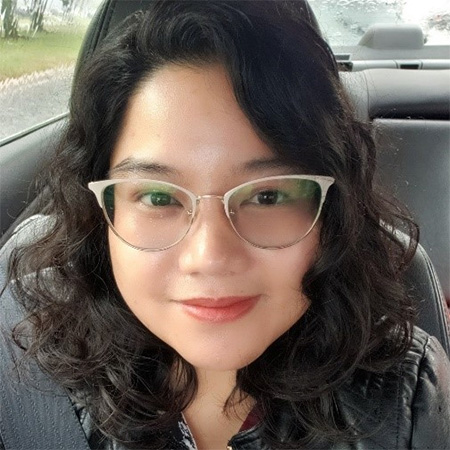
In the final story of our three-part “Reclaiming My Identity” series, Mavreen thought she had to silently endure microaggressions from her peers before finding her confidence. In fact, you do not have to wait to speak up about negative experiences. The EDI Resolutions Team is available to inform you of what steps you can take if you feel you have experienced discrimination in the workplace.
Losing myself to the pressures of being the “model minority” and other microaggressions
When I first came to the United States for my master’s program, I struggled with molding myself into the best version of my race. It hurt when a graduate school professor compared me to a trained monkey, and I refused to be the clueless Asian. In response, I worked hard on smoothing the parts of myself that did not fit into my perception of the model Asian. The pursuit of this ideal meant questioning how I viewed myself and losing facets of my personality.
I was no longer just the “smart student” but was “actually smarter than [I] look,” as my graduate school classmate pointed out after I passed a cumulative exam in physical chemistry. I became aware of "how good [my] English was for a non-native speaker" when I beat church friends at Boggle. Even my professor who “usually asks [her] international students to hire a copyeditor” thought my writing was “clean” enough for publication. But apparently, my English was not good enough. My accent “needed correction” after two undergraduates made fun of the way I spoke English.
Years of internalized racism caused me to constantly navigate the tension of seeing myself as both “good” and “not good enough.” At one time I felt confident sharing my political views. Eventually, I started hiding those views, not fully confident that my voice mattered in the U.S. I felt disempowered and suffered through every incident of injustice, discrimination, microaggression, or racism all without causing a fuss. Because I stayed in my lane and never wanted to stand out, eventually I lost my voice.
Breaking my silence on success determinants in Science, Technology, Education, and Math (STEM)
When I worked with resettled Burmese refugee youth for my dissertation work, I recognized the privilege I held – my pursuit of higher education. Driven by circumstance, I had to reclaim my voice, especially since I worked with diverse groups in STEM. If I were to improve the educational outcomes of racialized youth in STEM, I needed to have a voice to question how U.S. school systems viewed English Language Learners (ELL).
I needed the ability to argue that science engagement is not determined solely by English proficiency and that there are multimodal ways to engage in science.
I needed to develop a way to make ELL scientific contributions visible and not solely viewed through the lens of verbal engagement in English.
I had to demonstrate to the youth I worked with that when they focus on what they perceive as their lack of English proficiency, they overlook the other languages they speak.
Changing my narrative to help others authentically tell their story
My dissertation project was not just a means of completing my degree; it was also a way for me to rewrite my Asian American narrative and embrace all aspects of my identity, including my imperfect grammar and accent. My journey has been complex, often fraught with uncertainty and self-doubt. But through my experiences, I have learned that being Asian American is not a one-size-fits-all identity and that there is no right or wrong way to navigate this identity. I have also learned the importance of reclaiming my voice and using it to advocate for diverse groups in STEM, particularly other ELL.
In my current role as a Scientific Program Analyst, I work with women in biomedical careers. I continue to challenge the stereotypes and expectations placed on me as an Asian American. I use my voice to empower and uplift those who are viewed as less accomplished and often silenced in our society.
Leveraging Language Access Programs and diversity, equity, inclusion, and accessibility training
Mavreen’s story is a reminder of the importance of providing inclusive language access in the workforce. There is a significant and increasing limited English proficiency (LEP) population in the U.S. who need language assistance services at work or in healthcare settings. NIH is committed to providing meaningful access to its programs and activities to people with LEP. Learn more about building an inclusive workplace for employees by being an effective ally.
Do you have a story idea for us? Do you want to submit a guest blog? If it's about equity, diversity, or inclusion, please submit to edi.stories@nih.gov.
For news, updates, and videos, subscribe or follow EDI on: Twitter, Instagram, Blog, YouTube.






